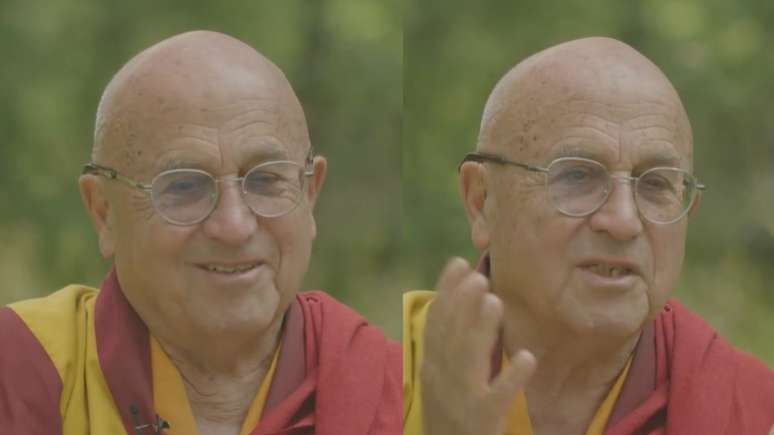French monk Matthieu Ricard, known as “the happiest man in the world,” shares three practices that transform the mind and cultivate true happiness
Matthieu Ricardo He is known as “the happiest man in the world”, a title born from a curious scientific discovery. Researchers from University of Wisconsin-Madisonus United Statesthey found that the French monk’s brain produced very high levels of gamma waves, associated with attention, learning and memory. The result surprised scientists and transformed Ricard into one of the world’s leading references in terms of well-being and compassion.
Today, at 78, he is a writer, photographer, humanitarian and direct disciple of Dalai Lama. In an interview with The New York Timesthe monk has summarized what he believes to be the path to a balanced and happy life in three simple practices.
Three pillars of happiness
1. Cultivate positive emotions through meditation
For Ricard, happiness is mental training. He compares the mind to a muscle that needs daily practice to get stronger. Meditation, he explains, is not an escape from the world, but a way of observing thoughts without being dominated by them.
“When you’re in that moment of unconditional love, that feeling fills our minds for 30 seconds, maybe a minute, and then suddenly it goes away. We’ve all been there. The only difference now is to cultivate that feeling in some way. Make it last a little longer. Try being silent with that feeling for 10, 20 minutes. If it goes away, try to bring it back.”sign.
The monk emphasizes that meditation does not require isolation or complex techniques: just take time to be silent and reconnect with emotions such as kindness and gratitude. This exercise, practiced consistently, helps reduce stress and increases mental clarity.
2. Understand that happiness is a process, not a destination
When asked about the “secret of happiness”, Ricard usually smiles and says it doesn’t exist. “First, there are no secrets. Second, there are not just three points. Third, it takes a lifetime to get there, but it’s the most valuable thing you can do”he states. He believes that the modern mistake is to seek immediate pleasure, confusing it with well-being. For the monk, true happiness is an internal state of balance, not the absence of sadness.
“I enjoy every moment of life, but, of course, there are moments of extreme sadness, especially when you see so much suffering. But it should ignite your compassion, and if it ignites your compassion, you move towards a stronger, healthier, more meaningful way of being,” explains. Ricard describes happiness as the center of stability of the mind, the point to which we return even after the natural oscillations of life.
3. Observe negative emotions without being guided by them
Despite the serenity he exudes, Ricard recognizes that he still has to deal with irritations and insecurities. The difference, he says, is how he approaches them. “I have improved my ability to control my thoughts and emotions instead of letting them control me. Sometimes I walk in front of the mirror and have an extreme moment of self-loathing. Or I worry about something stupid, like finding a parking space. Will these reactions ever go away? Yes. Of course they will.”comments.
For him, controlling emotions does not mean repressing them, but understanding them as fleeting. By realizing that feelings like anger or fear do not define who we are, we open our inner space to peace and clarity.
From scientist to monk: a journey through consciousness
Before becoming a Buddhist monk, Matthieu Ricard was a molecular biologist France and worked with renowned scientists. Son of the philosopher Jean-François Revel and the painter Yahne Le Toumelinhe had a promising career, until he decided to trade the laboratory for Himalayaswhere he dedicated himself to the teachings of Tibetan Buddhism.
Since then he has lived in the monastery Shechen Tennyi DargyelingIn Nepaland works on humanitarian projects which led to him receiving the French National Order of Merit. The author of numerous books on happiness and altruism, Ricard recalls that his famous nickname was never something he sought:
“Think for five seconds: How can you know the happiness level of 7 billion human beings? It doesn’t make sense. It all started as a press joke. The study didn’t measure happiness, but compassion.” Even so, the nickname has stuck, perhaps because, in times of haste and disconnection, Ricard’s serenity symbolizes the real possibility of living at peace with oneself.
Source: Terra
Ben Stock is a lifestyle journalist and author at Gossipify. He writes about topics such as health, wellness, travel, food and home decor. He provides practical advice and inspiration to improve well-being, keeps readers up to date with latest lifestyle news and trends, known for his engaging writing style, in-depth analysis and unique perspectives.








